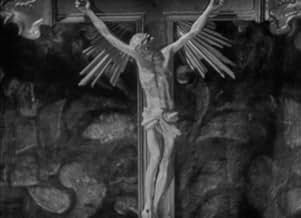AVALIAÇÃO DA IMDb
7,5/10
1,6 mil
SUA AVALIAÇÃO
Adicionar um enredo no seu idiomaFrench soldier travels to Germany to find a family of a man he killed during World War I.French soldier travels to Germany to find a family of a man he killed during World War I.French soldier travels to Germany to find a family of a man he killed during World War I.
- Prêmios
- 2 vitórias e 1 indicação no total
Rod McLennan
- War Veteran
- (as Rodney McLennon)
George Davis
- Concierge
- (não creditado)
Robert Dudley
- Townsman
- (não creditado)
Lillian Elliott
- Frau Bresslauer
- (não creditado)
Henry Fifer
- Townsman
- (não creditado)
Julia Swayne Gordon
- Townswoman
- (não creditado)
Enredo
Você sabia?
- CuriosidadesThe family name of the German family whose son was killed is Holderlin, the name of the greatest Romantic idealist poet of Germany.
Avaliação em destaque
In the sense that this film's post-WW I pacifist yearnings are naive and unsupported by philosophic or practical consideration, this film is dated, there's no denying that. In that sense it's tied to its time in a way that many other films of the early thirties are not. But still, it's a wonderful film! A simple story: A Frenchman is overcome with guilt for killing a single German in battle in WW I. The church gives him no solace, so he decides to seek the forgiveness of the German soldier's family. The family jumps to the conclusion that he was a friend of their son, and he hasn't the courage to tell them the truth.
The performances are straightforward, and Lionel Barrymore is superb, as he nearly always was in his early years. When appropriate, Lubitsch uses all the showy techniques of his personal style. The opening scenes are a bravura series of brilliant visual bits, particularly the tracking shot down the church aisle at an armistice service, showing a belted sword extended from each pew. At other points, too, his special touch is evident, especially with the use of sound. When the German girl strolls with the Frenchman, the scandalous news travels from shop to shop to shop, and their walk is punctuated by the sound of the tingling bells on the shop doors. And the ticking of the clock, which the old man faithfully winds in his dead son's room, is adroitly used in the final scenes. One of the most telling uses of sound is when Barrymore hears the sound of marching feet. He looks toward an archway and the militaristic sound grows louder, but the sequence ends before the soldiers appear in the arch. It's a chilling moment that reminds the audience that Hitler is just off-screen, that perhaps the film's ideas are already out-of-date.
But Lubitsch also shows his greatness by the ABSENCE of obvious Lubitsch technique throughout much of the film. He's aware that his characters are the essence of the film, and for long stretches he lets his players act their story in plain, unbroken two-shots, without cinematic embellishment. It's a film by a master, and it's shameful that the failure of this film prevented Lubitsch from ever undertaking another drama.
The performances are straightforward, and Lionel Barrymore is superb, as he nearly always was in his early years. When appropriate, Lubitsch uses all the showy techniques of his personal style. The opening scenes are a bravura series of brilliant visual bits, particularly the tracking shot down the church aisle at an armistice service, showing a belted sword extended from each pew. At other points, too, his special touch is evident, especially with the use of sound. When the German girl strolls with the Frenchman, the scandalous news travels from shop to shop to shop, and their walk is punctuated by the sound of the tingling bells on the shop doors. And the ticking of the clock, which the old man faithfully winds in his dead son's room, is adroitly used in the final scenes. One of the most telling uses of sound is when Barrymore hears the sound of marching feet. He looks toward an archway and the militaristic sound grows louder, but the sequence ends before the soldiers appear in the arch. It's a chilling moment that reminds the audience that Hitler is just off-screen, that perhaps the film's ideas are already out-of-date.
But Lubitsch also shows his greatness by the ABSENCE of obvious Lubitsch technique throughout much of the film. He's aware that his characters are the essence of the film, and for long stretches he lets his players act their story in plain, unbroken two-shots, without cinematic embellishment. It's a film by a master, and it's shameful that the failure of this film prevented Lubitsch from ever undertaking another drama.
- bensonj
- 16 de nov. de 2001
- Link permanente
Principais escolhas
Faça login para avaliar e ver a lista de recomendações personalizadas
- How long is Broken Lullaby?Fornecido pela Alexa
Detalhes
- Data de lançamento
- País de origem
- Idiomas
- Também conhecido como
- Broken Lullaby
- Locações de filme
- Empresa de produção
- Consulte mais créditos da empresa na IMDbPro
Bilheteria
- Orçamento
- US$ 889.154 (estimativa)
- Tempo de duração1 hora 16 minutos
- Cor
- Proporção
- 1.20 : 1
Contribua para esta página
Sugerir uma alteração ou adicionar conteúdo ausente

Principal brecha
By what name was Não Matarás (1932) officially released in India in English?
Responda






























